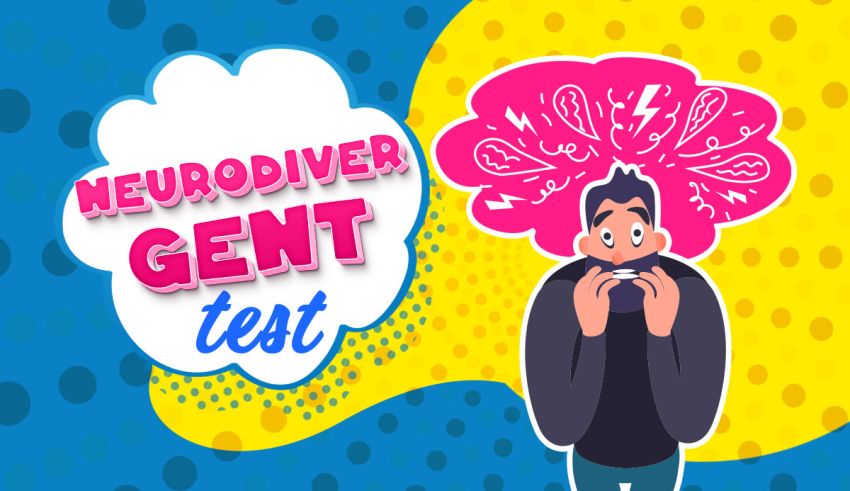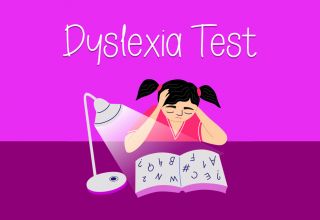
What Is Neurodiversity and How to Test It
The idea of neurodiversity comes from our brains’ neurological differences. The term was coined by Judy Singer, a sociologist, in the 1990s. It refers to all the possible conditions caused by our neurological uniqueness, such as ADHS, BPD Disorder, and even Dyslexia.
There’s no clinical method to test a person for neurodivergent. However, you can use genuine online alternatives to self-report your symptoms and receive a reliable analysis.
A Diverse Neurodivergent Quiz
The test here is a set of 20 questions about the common indicators of neurodivergent brain functions. The goal is to determine whether you belong to the neurodivergent category.
It’s a personality and thought process analysis to compare your neurological profile with others. The questions have no right or wrong answers. So, please choose ones that make the most sense to you—and are close to your experiences.
Neurodivergent vs. Neurotypical.
A neurotypical person’s brain function aligns with expected patterns. However, the brain of a neurodivergent individual has a diverse way of thinking and perceiving—hence the name.
Taking the test allows you to better determine which category describes your brain activities and offers more insight into each concept.
| Neurotypical | Neurodivergent |
| Difficulty concentrating | ADHD |
| Anxiety | Bipolar |
| Difficulty reading | Dyslexia |
Understand your divergency.
Neurodiversity is a broad topic that covers lots of personality disorders and mental illnesses. So, the question is more than, “Am I neurodivergent?” It’s about what type of diversity you face and how it’s affecting your life. The quiz does its best to identify the exact type of neurological difference to ensure the results are as helpful as possible.
Learn more about the concept.
The neurodivergent test includes valuable information about the idea of brain function variations. So, not only will it analyze your possible condition(s), but it will also educate you. The results are as informative as possible, having proper resources for further exploring the topic.
What Are the Neurodivergent Test Results Like?
Neurodiversity is a spectrum. It covers various conditions and disorders and typical personalities and behaviors. So, the results of the neurodivergent test try to simulate the same range. You might end up being called a neurotypical person or a diverse one, depending on your responses.
Here are some of the possible results of the quiz.
ADHD
Attention Deficit Hyperactivity Disorder is one of the common conditions in the neurodivergent community. According to the National Comorbidity Survey Replication, it affects 4.4% of adults.
Autism
Another part of the neurodivergent community includes the autism spectrum. That’s why the test has exclusive questions to see if you belong to this category or not,
Dyslexia
We have already created a dyslexia quiz to help with uncovering its symptoms. However, the neurodivergent test will also investigate the possible indicators of such a learning dysfunction.
Bipolar
Many neurodivergent individuals ask things like, “Am I bipolar?” It’s because most neurological conditions have similar symptoms to that of a mood disorder. But our test can accurately discover if you’re struggling with BPD or if it’s something else.
Other Conditions
The neurodivergent test covers a wide range of PDs and mental conditions. It can precisely determine whether your brain is functioning normally or abnormally.
How the Neurotypical Test Works
The questionnaire is in self-report format. You should select the options that you relate to or have experienced before. Your responses will then be compared to our database to reveal your neurodiverse type.
It analyzes the way your brain functions.
The key to understanding neurodiversity is reviewing a person’s thought process. That’s why the test has specific questions that expose how people think about and perceive things.
It looks for diversity and uniqueness.
The quiz also considers your behavioral differences to finetune the results. Neurodivergent individuals might share behavioral patterns such as time blindness, executive dysfunction, and hyper-fixation.
How NOT to Interpret the Neurological Diversity Concept
A misconception and stigma around the idea of neurodiversity is that it normalizes disorders and disabilities. Some say accepting autism as diverse brain functions might lead to less interest in clinical treatments and medications.
But you should note that that’s not the intention of the neurodivergent test or the whole concept of diversity in general. The idea of neurological differences is only a tool to remove the stigma around personality disorders, mental health issues, and disabilities.
The Neurodivergent Test Is the Appreciation of the Challenges You Might Face
The sole goal of the questionnaire is to help understand individual variations in the human brain functions. There’s nothing wrong with having ADHD, bipolar disorder, or autism. And that’s what our test promotes. We are all on the same spectrum, and being diverse is all we have in common.
Disclaimer
Please take the results lightly, as the Neurodivergent test is not a clinical procedure to diagnose you with any disorder, mental illness, or disability.































